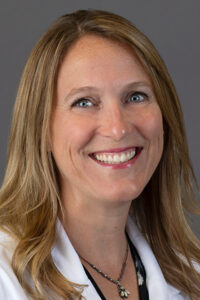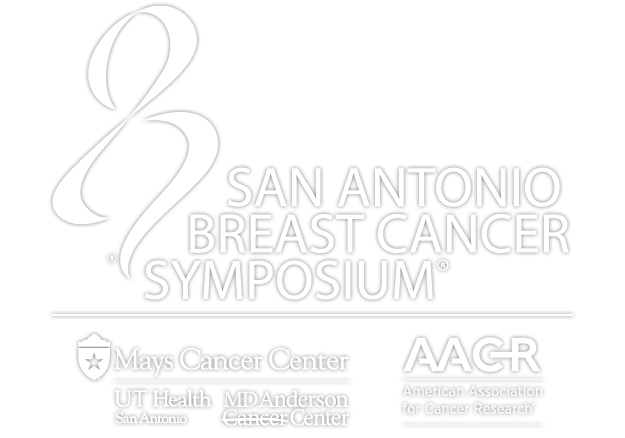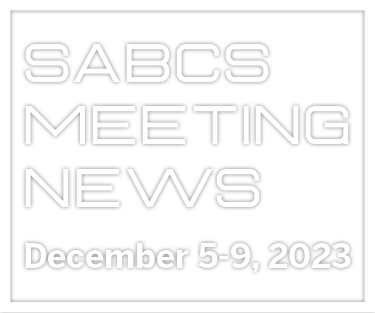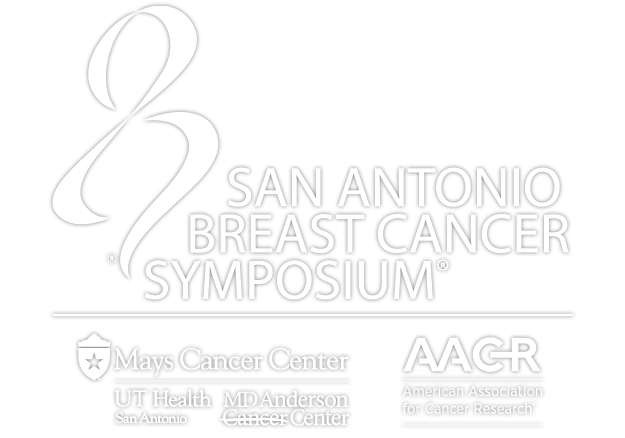
The San Antonio Breast Cancer Symposium will shine a spotlight on some of the latest advances in basic science related to breast cancer during the Basic Science for Breast Oncologists workshop on Tuesday, December 7.
“The best advances in breast cancer research come from collaborating across disciplines, and it’s amazing each year to see how quickly science evolves,” said workshop moderator Alana Welm, PhD, Professor and Senior Director of Basic Science at the University of Utah Huntsman Cancer Institute.
This workshop will feature four speakers covering a wide range of basic science topics.
Two of the speakers will discuss the use of technology for development and exploitation of patient-derived models like organoids that allow for experiments with models that better represent the clinical disease. These experiments help with understanding of how breast cancer initially develops or test new therapeutic strategies, Dr. Welm said.
“The latest innovations have allowed these models to be used in co-culture systems to better understand, for example, how immune cells interact with tumor cells,” Dr. Welm said.
Jennifer Rosenbluth, MD, PhD, Assistant Professor at the University of California, San Francisco, and a member of the UCSF Breast Oncology Program, will discuss genome editing in human organoids as new models of discovery.
Senthil Muthuswamy, PhD, Associate Professor of Medicine at Harvard Medical School and Director of the Cell Biology Program at the Beth Israel Deaconess Medical Center, will give a presentation on tricking T cells into action and how patient-derived organoids can be used to identify and expand tumor-specific T cells.
“These tumor-specific immune cells are very rare amongst all of the immune cells in the blood, but organoid co-cultures can be used to selectively expand these cells, since they proliferate when they see their specific targets,” Dr. Welm said. “Future applications might include transferring those T cells back into the patient for immunotherapy, or cloning the T cell receptors to find particular antigens that might be used as immunotherapy targets.”
The other two presentations will be talks on mining the ever-growing resources of existing data that have been made publicly available, and on exactly how much experimental data (and/or mined in silico data) is needed before a clinical trial for a new therapy, biomarker, etc., can be launched.
Daniel Stover, MD, Assistant Professor of Medicine & Biomedical Informatics at the Ohio State University Comprehensive Cancer Center, will discuss in silico experimentation, including a review of available tools to access and analyze existing datasets.
Finally, Bora Lim, MD, Associate Professor of Breast Oncology and Director of Translational Research at the Lester and Sue Smith Breast Center at Baylor College of Medicine, will help attendees understand how to tell when basic science discoveries are ready to translate.
“I hope participants will see how techniques that were previously not possible are now becoming feasible and how these advances might be applied to important clinical questions,” Dr. Welm said.
SABCS REGISTRATION
The 2021 SABCS offers attendees the unique opportunity to participate in person in San Antonio, or virtually. The new meeting model will cater to both onsite and virtual meeting attendees. For those attending in-person, SABCS is committed to attendees’ safety and will adhere to safety guidelines and protocols. Onsite registration includes access to the virtual meeting as well.
Mandatory masks are required prior to joining the conference. For attendees who are not able to travel, the virtual option is available. UT Health continues to monitor COVID-19. Our priority is always on the health and safety of our community.



